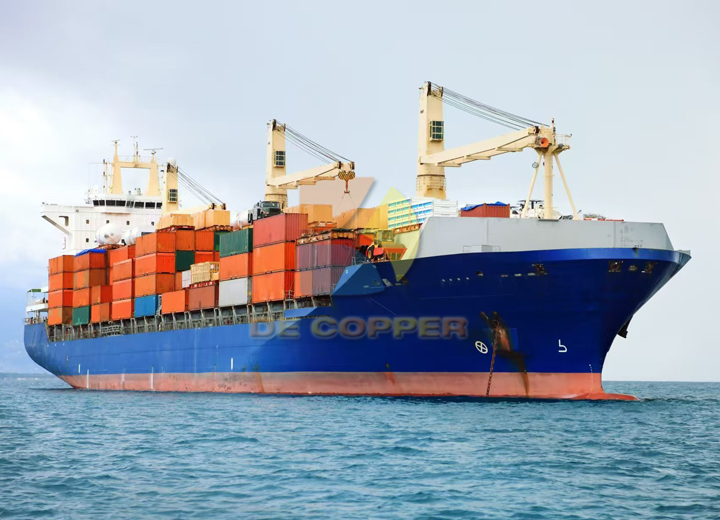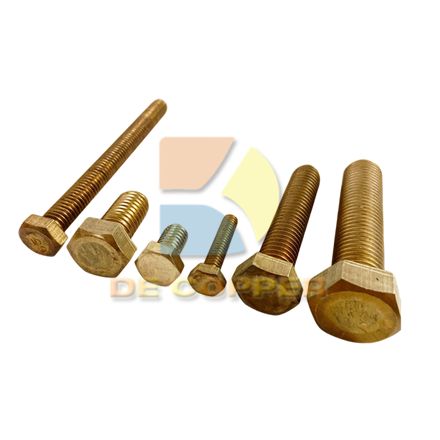close
Choose Your Site
Global
Social Media
Views: 0 Author: Site Editor Publish Time: 2025-07-31 Origin: Site

In the context of the continuous development of the global shipping industry, the performance of ship materials is directly related to the safety, economy and service life of ships. As a high-performance copper alloy, silicon bronze has been widely used in the field of shipbuilding due to its excellent seawater corrosion resistance, mechanical strength and processing performance. This article will analyze the actual application effect of silicon bronze in the shipbuilding industry through specific cases, and provide a reference for the technical selection in related fields.
During routine maintenance, it was discovered that the original stainless steel propeller of the 150,000-ton bulk carrier Ocean Pioneer owned by an international shipping company had severe cavitation, resulting in a 12% decrease in propulsion efficiency and increased fuel consumption.
In 2022, the ship replaced the propeller with a new one made of silicon bronze (C65500), mainly based on the following considerations:
1. The cavitation resistance of silicon bronze is 40% higher than that of the original stainless steel material
2. The material yield strength reaches 550MPa, which meets the strength requirements of large-size propellers
3. The natural antibacterial properties of copper ions can reduce the attachment of marine organisms
Inspection after 18 months of operation showed that:
The degree of corrosion on the blade surface was reduced by 85%
Fuel efficiency was restored to 98% of the design value
The amount of biological attachment was reduced by 70%, saving the cost of three planned dockings for cleaning
Although the initial cost of silicon bronze propellers is about 25% higher than that of stainless steel, it is expected that the following can be saved over the entire life cycle:
Maintenance costs: about $180,000
Fuel costs: about $320,000
Dockage time: a total reduction of 45 days
![]()
When a certain country's navy's 054A frigate was performing missions in tropical waters, pitting and leakage frequently occurred in the stainless steel seawater cooling pipeline, seriously affecting its combat effectiveness.
Main seawater pump inlet and outlet pipes
Fire protection system main pipes
Heat exchanger connecting pipes
| Index | 316L stainless steel | Silicon Bronze C65600 | Improvement |
| Annual corrosion rate (mm) | 0.15 | 0.02 | 86.7% |
| Impact resistance (J) | 45 | 68 | 51.1 |
| Service life (years) | 8 | 15+ | 87.5% |
After the transformation, the ship:
The average annual failure rate dropped from 3.2 to 0.5 times
The continuous duty time in tropical waters was extended by 40%
The system reliability score increased from 82 points to 96 points
The design of a 150,000-ton luxury cruise ship "Sapphire Princess" requires:
Exterior parts must be both beautiful and corrosion-resistant
Reduce galvanic corrosion between different metals
Reduce maintenance frequency
The shipowner finally chose silicon bronze for:
Ship side trim (total length over 2 kilometers)
Open deck fastener system
Observation platform railing components
Use new C65800 silicon bronze, add 1.2% nickel to improve strength
Develop exclusive surface treatment process to present a stable bronze appearance
Innovative connection structure to avoid direct contact with other metals
In the three years since it was put into use:
No replacement record for exterior parts
Color retention of 92% (traditional coatings are usually 65-70%)
Annual maintenance cost savings of approximately US$280,000
![]()
A polar research vessel faced the following when operating in Antarctica:
Severe temperature differences from -40°C to +20°C
Sea ice friction corrosion
Polar microbial corrosion
Modified silicon bronze is used in key parts:
Icebreaker belt reinforcement
Research equipment bracket
Underwater sensor protection cover
In accelerated tests simulating polar environments:
Resistance to low-temperature brittleness: Good toughness at -50°C
Wear resistance: 30% higher than the original aluminum bronze
Biological corrosion: Almost zero
After two consecutive Antarctic research seasons (14 months in total):
Structural integrity remained 100%
No equipment failures caused by corrosion
15% weight reduction while increasing strength
Cost-benefit comparison
| Application area | Traditional Materials | Silicon Bronze Solution | Payback period |
| Propeller | Duplex stainless steel | +25% cost | 2.8 years |
| Seawater pipeline | 316 | +18% cost | 1.5 years |
| Ship Mounting | Galvanized Steel | +30% cost | 3.2 years |
Obvious cost advantage throughout the life cycle
Particularly suitable for high value-added ships
In line with the trend of IMO environmentally friendly materials
Develop silicon bronze series alloys for ships
Promote the application of additive manufacturing technology in complex components
Establish a standard system for the application of silicon bronze in the shipbuilding industry


The four typical cases presented in this article fully prove that the application of silicon bronze in the shipbuilding industry can not only significantly improve the service life and reliability of key components, but also bring considerable economic benefits. With the continuous advancement of material technology and the innovation of manufacturing processes, the application prospects of silicon bronze in the shipbuilding field will be broader and is expected to become a benchmark choice for the new generation of ship materials. It is recommended that shipbuilding companies give priority to silicon bronze solutions in new construction and renovation projects, especially in high-value and high-demand application scenarios.